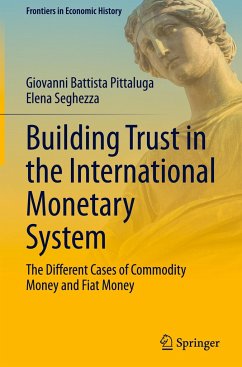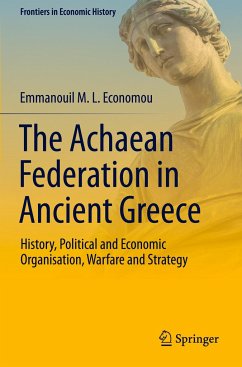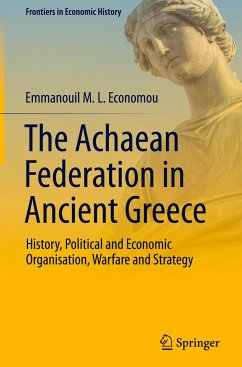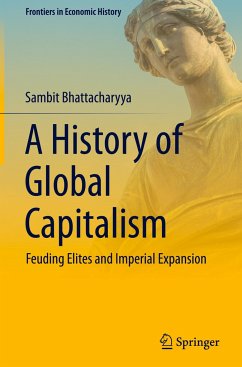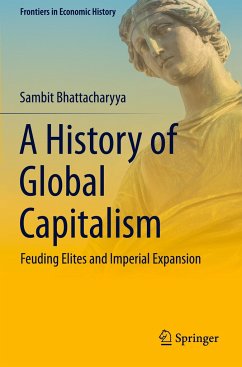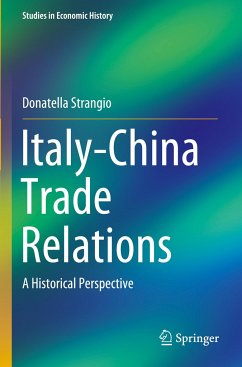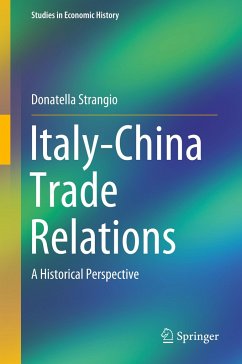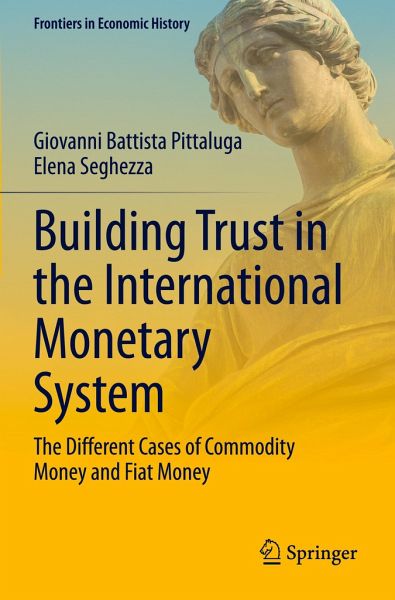
Building Trust in the International Monetary System
The Different Cases of Commodity Money and Fiat Money
Versandkostenfrei!
Versandfertig in 6-10 Tagen
91,99 €
inkl. MwSt.
Weitere Ausgaben:

PAYBACK Punkte
46 °P sammeln!
This book presents the evolution of the international monetary system from the gold standard to the monetary system in force today. It adopts a political economy approach, emphasizing the economic and political conditions under which an international monetary system can come into existence and be maintained over time. This approach highlights how the gradual transition in the international context from commodity money to fiat money has been led by the need for greater elasticity of money supply and smooth adjustments. This transition, however, raises the issue of how to guarantee, over time, t...
This book presents the evolution of the international monetary system from the gold standard to the monetary system in force today. It adopts a political economy approach, emphasizing the economic and political conditions under which an international monetary system can come into existence and be maintained over time. This approach highlights how the gradual transition in the international context from commodity money to fiat money has been led by the need for greater elasticity of money supply and smooth adjustments. This transition, however, raises the issue of how to guarantee, over time, the value of a money devoid of intrinsic value. By presenting a historical evolution, the book explains how the existence of an international monetary system based on money without intrinsic value can only occur when a particular balance of power exists at the international level that allows for the production of trust in a fiat money. The book is a must-read for scholars, researchers, and students in the fields of economic history and international monetary economics, interested in better understanding the evolution of the international monetary system.



